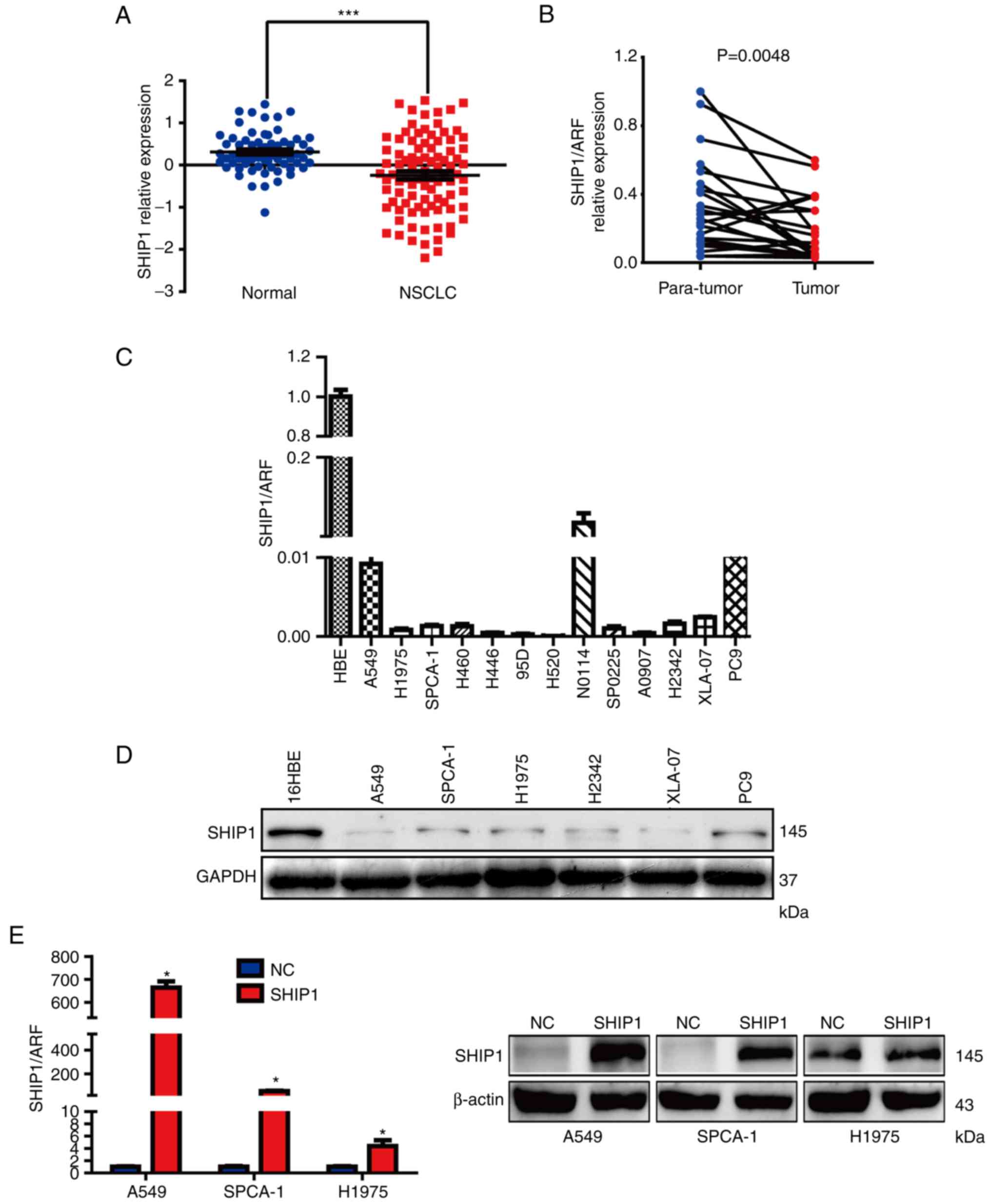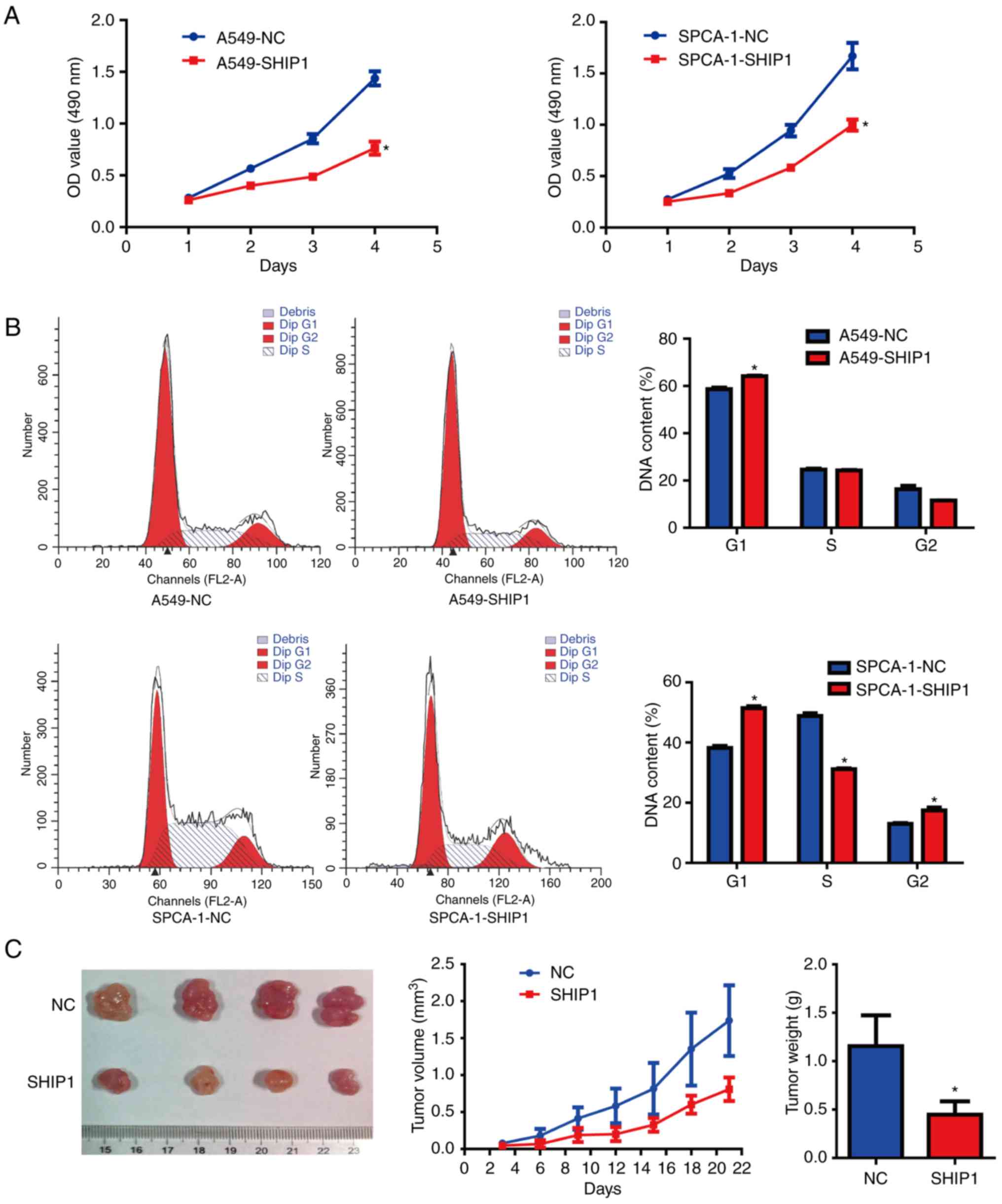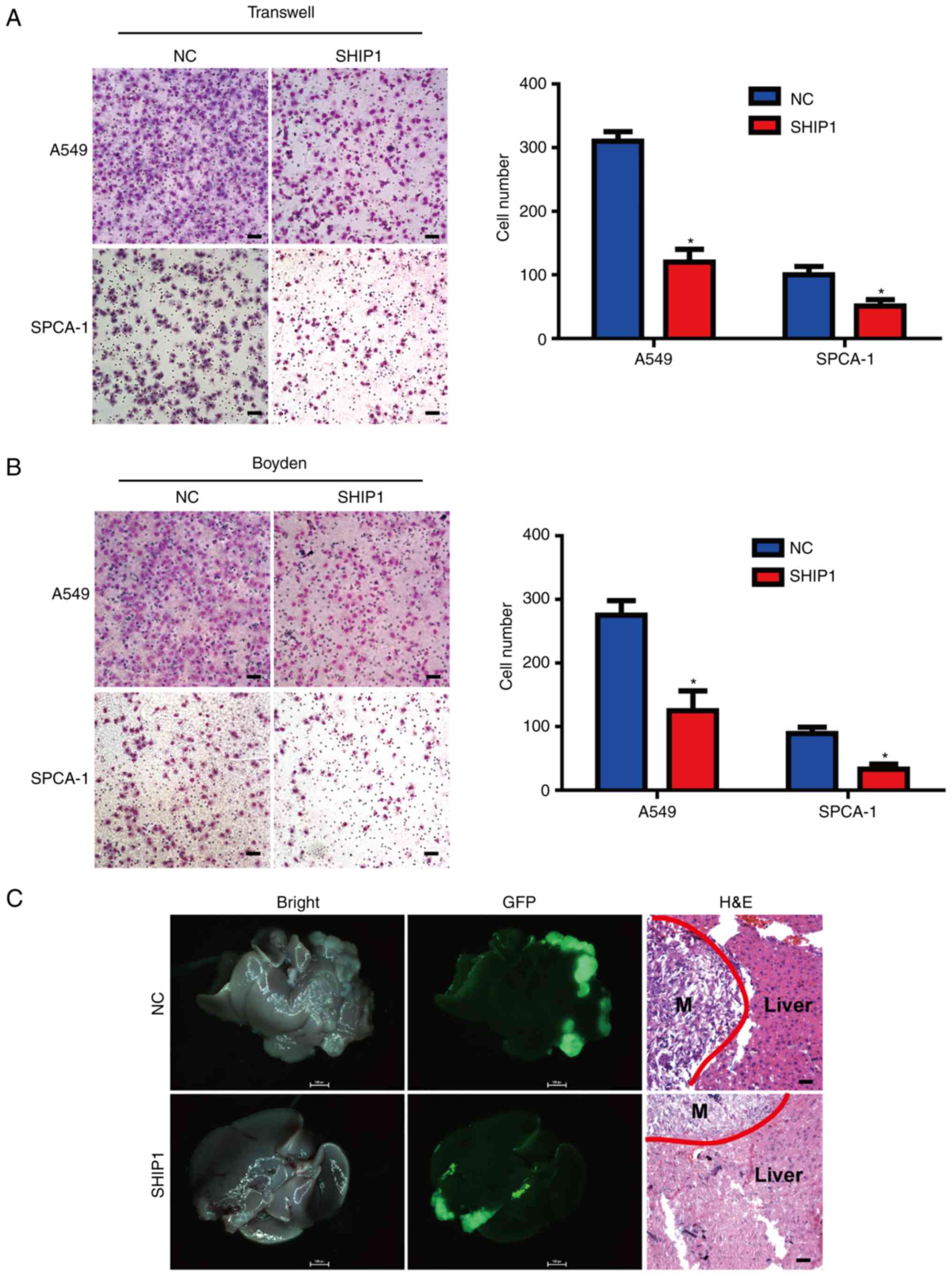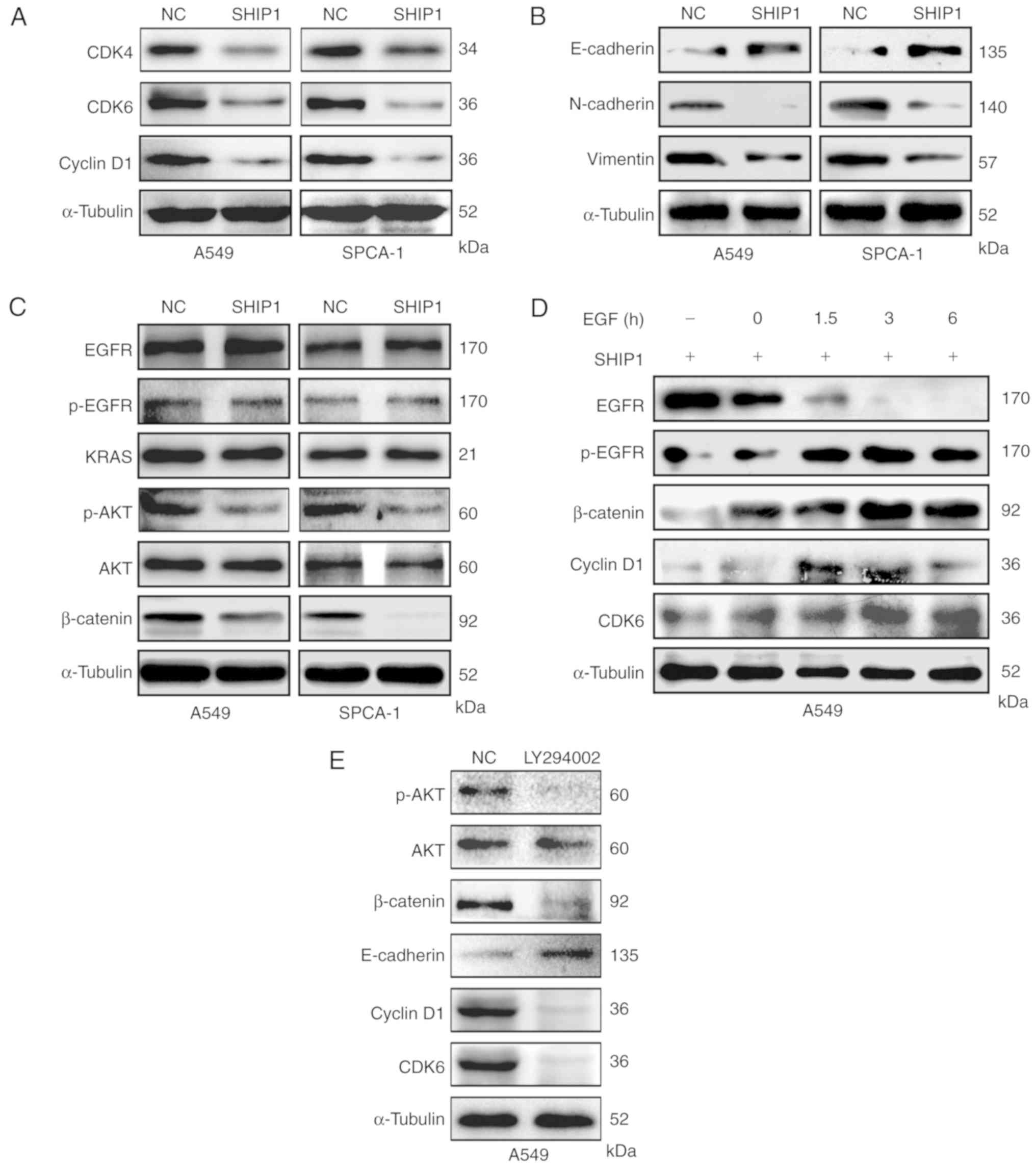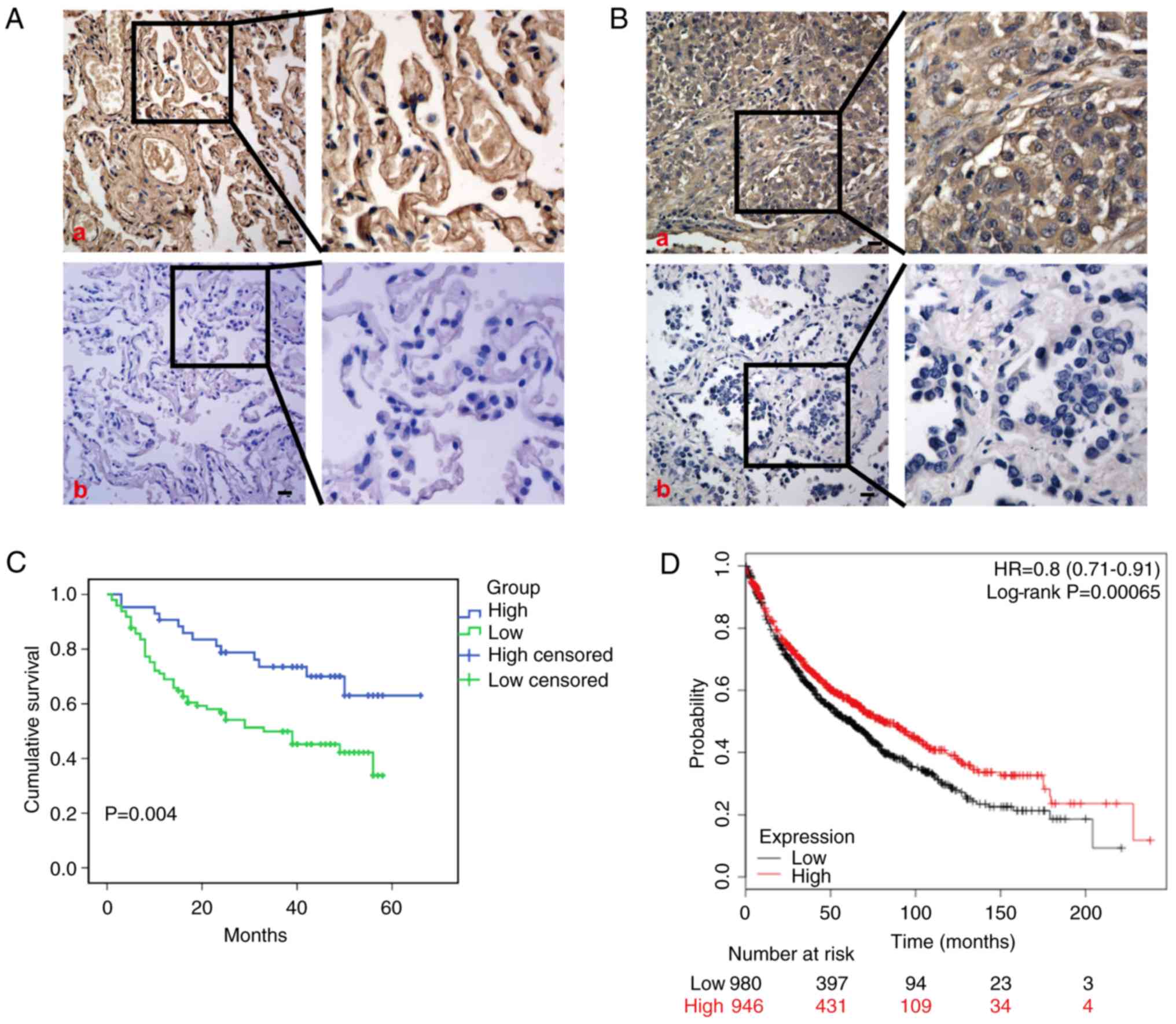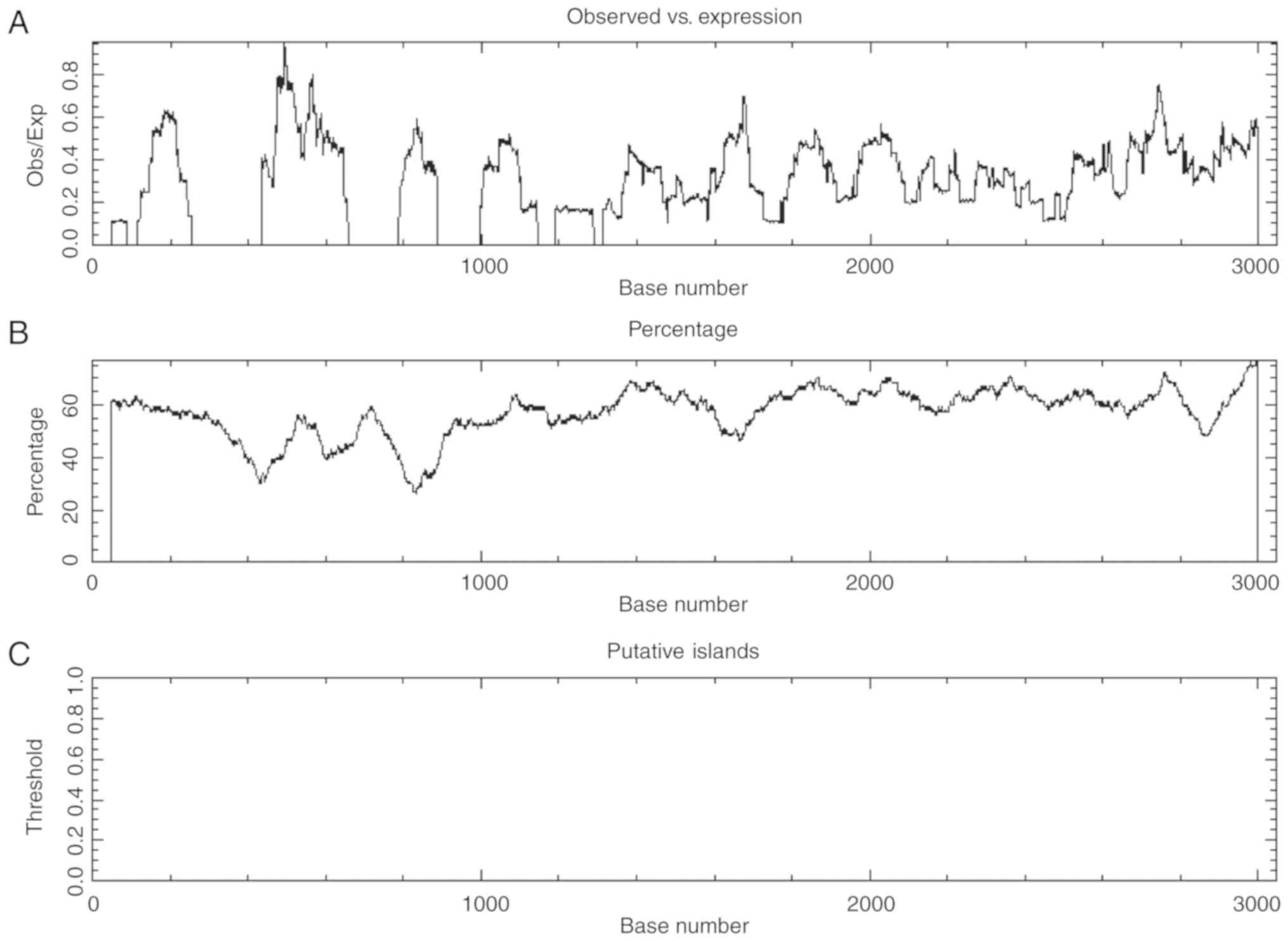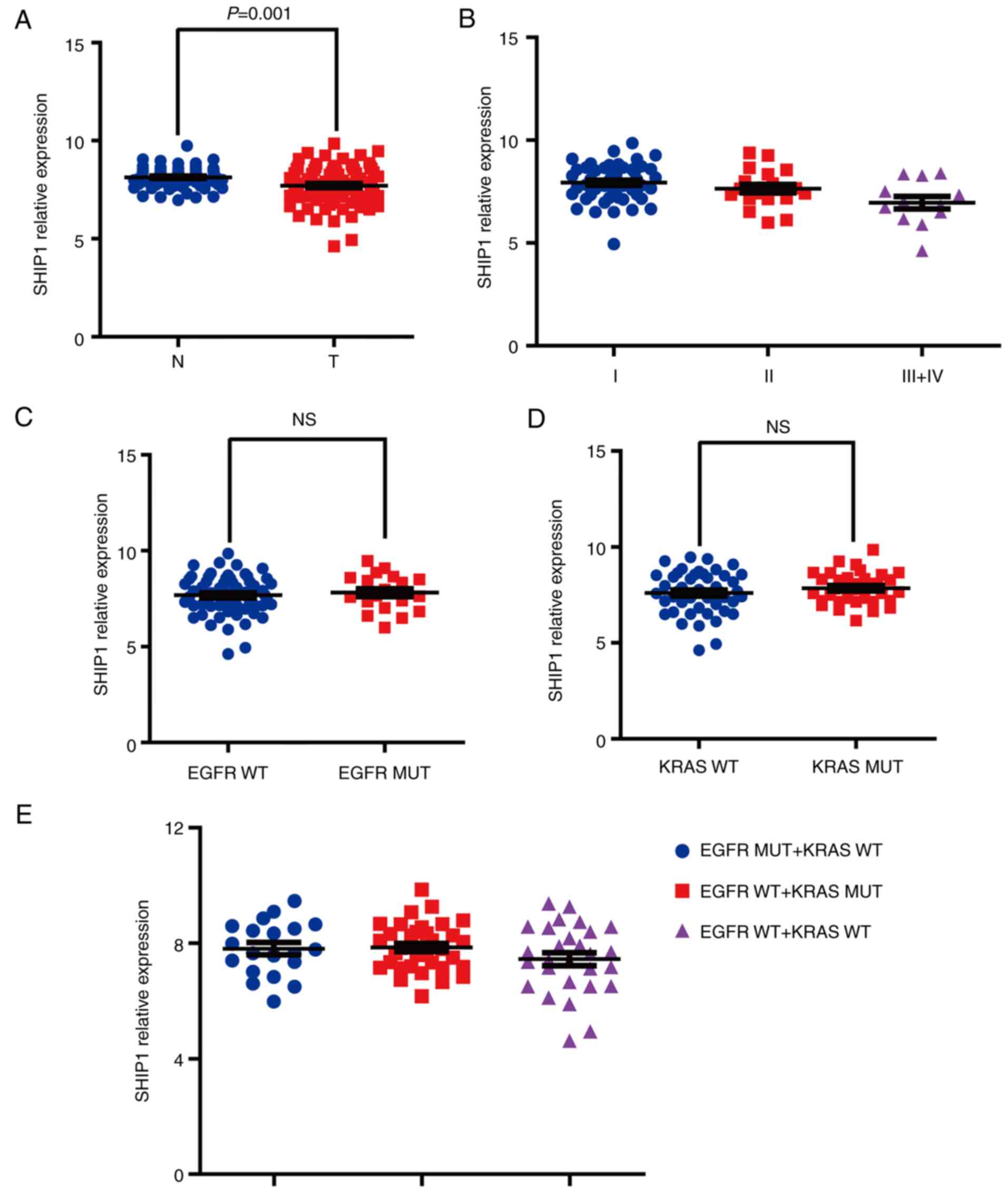|
1
|
Conduit SE, Ramaswamy V, Remke M, Watkins
DN, Wainwright BJ, Taylor MD, Mitchell CA and Dyson JM: A
compartmentalized phosphoinositide signaling axis at cilia is
regulated by INPP5E to maintain cilia and promote Sonic Hedgehog
medulloblastoma. Oncogene. 36:5969–5984. 2017. View Article : Google Scholar : PubMed/NCBI
|
|
2
|
D'Oria R, Laviola L, Giorgino F, Unfer V,
Bettocchi S and Scioscia M: PKB/Akt and MAPK/ERK phosphorylation is
highly induced by inositols: Novel potential insights in
endothelial dysfunction in preeclampsia. Pregnancy Hypertension.
10:107–112. 2017. View Article : Google Scholar : PubMed/NCBI
|
|
3
|
Tang F, Wang Y, Hemmings BA, Ruegg C and
Xue G: PKB/Akt-dependent regulation of inflammation in cancer.
Semin Cancer Biol. 48:62–69. 2018. View Article : Google Scholar : PubMed/NCBI
|
|
4
|
Wang H and Shears SB: Structural features
of human inositol phosphate multikinase rationalize its inositol
phosphate kinase and phosphoinositide 3-kinase activities. J Biol
Chem. 292:18192–18202. 2017. View Article : Google Scholar : PubMed/NCBI
|
|
5
|
Chacko GW, Tridandapani S, Damen JE, Liu
L, Krystal G and Coggeshall KM: Negative signaling in B lymphocytes
induces tyrosine phosphorylation of the 145-kDa inositol
polyphosphate 5-phosphatase, SHIP. J Immunol. 157:2234–2238.
1996.PubMed/NCBI
|
|
6
|
Damen JE, Liu L, Rosten P, Humphries RK,
Jefferson AB, Majerus PW and Krystal G: The 145-kDa protein induced
to associate with Shc by multiple cytokines is an inositol
tetraphosphate and phosphatidylinositol 3,4,5-triphosphate
5-phosphatase. Proc Natl Acad Sci USA. 93:1689–1693. 1996.
View Article : Google Scholar : PubMed/NCBI
|
|
7
|
Geier SJ, Algate PA, Carlberg K, Flowers
D, Friedman C, Trask B and Rohrschneider LR: The human SHIP gene is
differentially expressed in cell lineages of the bone marrow and
blood. Blood. 89:1876–1885. 1997.PubMed/NCBI
|
|
8
|
Veillette A, Latour S and Davidson D:
Negative regulation of immunoreceptor signaling. Ann Rev Immunol.
20:669–707. 2002. View Article : Google Scholar
|
|
9
|
Täger M, Horn S, Latuske E, Ehm P, Schaks
M, Nalaskowski M, Fehse B, Fiedler W, Stocking C, Wellbrock J, et
al: SHIP1, but not an AML-derived SHIP1 mutant, suppresses myeloid
leukemia growth in a xenotransplantation mouse model. Gene Therapy.
24:749–753. 2017. View Article : Google Scholar : PubMed/NCBI
|
|
10
|
Brooks R, Fuhler GM, Iyer S, Smith MJ,
Park MY, Paraiso KH, Engelman RW and Kerr WG: SHIP1 inhibition
increases immunoregulatory capacity and triggers apoptosis of
hematopoietic cancer cells. J Immunol. 184:3582–3589. 2010.
View Article : Google Scholar : PubMed/NCBI
|
|
11
|
McKeever PM, Kim T, Hesketh AR, MacNair L,
Miletic D, Favrin G, Oliver SG, Zhang Z, St George-Hyslop P and
Robertson J: Cholinergic neuron gene expression differences
captured by translational profiling in a mouse model of Alzheimer's
disease. Neurobiol Aging. 57:104–119. 2017. View Article : Google Scholar : PubMed/NCBI
|
|
12
|
Ngoh EN, Weisser SB, Lo Y, Kozicky LK, Jen
R, Brugger HK, Menzies SC, McLarren KW, Nackiewicz D, van Rooijen
N, et al: Activity of SHIP, which prevents expression of
interleukin 1β, is reduced in patients with Crohn's disease.
Gastroenterology. 150:465–476. 2016. View Article : Google Scholar : PubMed/NCBI
|
|
13
|
Li F, Li L, Cheng M, Wang X, Hao J, Liu S
and Duan H: SHIP, a novel factor to ameliorate extracellular matrix
accumulation via suppressing PI3K/Akt/CTGF signaling in diabetic
kidney disease. Biochem Biophys Res Commun. 482:1477–1483. 2017.
View Article : Google Scholar : PubMed/NCBI
|
|
14
|
Chen Z, Shojaee S, Buchner M, Geng H, Lee
JW, Klemm L, Titz B, Graeber TG, Park E, Tan YX, et al: Signalling
thresholds and negative B-cell selection in acute lymphoblastic
leukaemia. Nature. 521:357–361. 2015. View Article : Google Scholar : PubMed/NCBI
|
|
15
|
Kerr WG: Inhibitor and activator: Dual
functions for SHIP in immunity and cancer. Ann NY Acad Sci.
1217:1–17. 2011. View Article : Google Scholar : PubMed/NCBI
|
|
16
|
Janku F: Phosphoinositide 3-kinase (PI3K)
pathway inhibitors in solid tumors: From laboratory to patients.
Cancer Treatment Rev. 59:93–101. 2017. View Article : Google Scholar
|
|
17
|
Viernes DR, Choi LB, Kerr WG and Chisholm
JD: Discovery and development of small molecule SHIP phosphatase
modulators. Med Res Rev. 34:795–824. 2014. View Article : Google Scholar : PubMed/NCBI
|
|
18
|
Marion F, Williams DE, Patrick BO,
Hollander I, Mallon R, Kim SC, Roll DM, Feldberg L, Van Soest R and
Andersen RJ: Liphagal, a Selective inhibitor of PI3 kinase alpha
isolated from the sponge Aka coralliphaga: Structure
elucidation and biomimetic synthesis. Org Lett. 8:321–324. 2006.
View Article : Google Scholar : PubMed/NCBI
|
|
19
|
Catimel B, Yin MX, Schieber C, Condron M,
Patsiouras H, Catimel J, Robinson DE, Wong LS, Nice EC, Holmes AB,
et al: PI(3,4,5)P3 interactome. J Proteome Res. 8:3712–3726. 2009.
View Article : Google Scholar : PubMed/NCBI
|
|
20
|
Siegel RL, Miller KD and Jemal A: Cancer
statistics, 2018. CA Cancer J Clin. 68:7–30. 2018. View Article : Google Scholar : PubMed/NCBI
|
|
21
|
Walter AO, Sjin RT, Haringsma HJ, Ohashi
K, Sun J, Lee K, Dubrovskiy A, Labenski M, Zhu Z, Wang Z, et al:
Discovery of a mutant-selective covalent inhibitor of EGFR that
overcomes T790M-mediated resistance in NSCLC. Cancer Discov.
3:1404–1415. 2013. View Article : Google Scholar : PubMed/NCBI
|
|
22
|
Passiglia F, Listi A, Castiglia M, Perez
A, Rizzo S, Bazan V and Russo A: EGFR inhibition in NSCLC: New
findings… and opened questions? Crit Rev Oncol Hematol.
112:126–135. 2017. View Article : Google Scholar : PubMed/NCBI
|
|
23
|
Morgillo F, Della Corte CM, Fasano M and
Ciardiello F: Mechanisms of resistance to EGFR-targeted drugs: Lung
cancer. ESMO Open. 1:e0000602016. View Article : Google Scholar : PubMed/NCBI
|
|
24
|
Krystal G: Lipid phosphatases in the
immune system. Semin Immunol. 12:397–403. 2000. View Article : Google Scholar : PubMed/NCBI
|
|
25
|
Leslie NR, Biondi RM and Alessi DR:
Phosphoinositide-regulated kinases and phosphoinositide
phosphatases. Chem Rev. 101:2365–2380. 2001. View Article : Google Scholar : PubMed/NCBI
|
|
26
|
Fu Q, Song X, Liu Z, Deng X, Luo R, Ge C,
Li R, Li Z, Zhao M, Chen Y, et al: miRomics and proteomics reveal a
miR-296-3p/PRKCA/FAK/Ras/c-Myc feedback loop modulated by
HDGF/DDX5/β-catenin complex in lung adenocarcinoma. Clin Cancer
Res. 23:6336–6350. 2017. View Article : Google Scholar : PubMed/NCBI
|
|
27
|
Livak KJ and Schmittgen TD: Analysis of
relative gene expression data using real-time quantitative PCR and
the 2−ΔΔCT method. Methods. 25:402–408. 2001. View Article : Google Scholar : PubMed/NCBI
|
|
28
|
Fu QF, Liu Y, Fan Y, Hua SN, Qu HY, Dong
SW, Li RL, Zhao MY, Zhen Y, Yu XL, et al: Alpha-enolase promotes
cell glycolysis, growth, migration, and invasion in non-small cell
lung cancer through FAK-mediated PI3K/AKT pathway. J Hematol Oncol.
8:222015. View Article : Google Scholar : PubMed/NCBI
|
|
29
|
Wang H, Wu Q, Liu Z, Luo X, Fan Y, Liu Y,
Zhang Y, Hua S, Fu Q, Zhao M, et al: Downregulation of FAP
suppresses cell proliferation and metastasis through PTEN/PI3K/AKT
and Ras-ERK signaling in oral squamous cell carcinoma. Cell Death
Dis. 5:e11552014. View Article : Google Scholar : PubMed/NCBI
|
|
30
|
Liu Z, Luo W, Zhou Y, Zhen Y, Yang H, Yu
X, Ye Y, Li X, Wang H, Jiang Q, et al: Potential tumor suppressor
NESG1 as an unfavorable prognosis factor in nasopharyngeal
carcinoma. PLoS One. 6:e278872011. View Article : Google Scholar : PubMed/NCBI
|
|
31
|
Zhen Y, Fang W, Zhao M, Luo R, Liu Y, Fu
Q, Chen Y, Cheng C, Zhang Y and Liu Z:
miR-374a-CCND1-pPI3K/AKT-c-JUN feedback loop modulated by PDCD4
suppresses cell growth, metastasis, and sensitizes nasopharyngeal
carcinoma to cisplatin. Oncogene. 36:275–285. 2017. View Article : Google Scholar : PubMed/NCBI
|
|
32
|
Philipsen S: Expression data for early
stage NSCLC. https://www.ncbi.nlm.nih.gov/geo/query/acc.cgi?acc=GSE191882010
April 10–2018
|
|
33
|
Gazdar A, Girard L, Stephen L, Wan L and
Zhang W: Expression profiling of 83 matched pairs of lung
adenocarcinomas and non-malignant adjacent tissue. https://www.ncbi.nlm.nih.gov/geo/query/acc.cgi?acc=GSE750372016
March 17–2018
|
|
34
|
Amin MB, Edge S, Greene F, Byrd DR,
Brookland RK, Washington MK, Gershenwald JE, Compton CC, Hess KR,
Sullivan DC, et al: AJCC Cancer Staging manual 8th. https://cancerstaging.org/references-tools/deskreferences/Pages/default.aspx)2016
January 26–2018
|
|
35
|
Michaelsen SR, Aslan D, Urup T, Poulsen
HS, Grønbæk K, Broholm H and Kristensen LS: DNA methylation levels
of the ELMO gene promoter CpG islands in human
glioblastomas. Int J Mol Sci. 19:E6792018. View Article : Google Scholar : PubMed/NCBI
|
|
36
|
Gardiner-Garden M and Frommer M: CpG
islands in vertebrate genomes. J Mol Biol. 196:261–282. 1987.
View Article : Google Scholar : PubMed/NCBI
|
|
37
|
Castaneda M, Chen L, Pradhan L, Li S, Zein
R, Lee Y, Lim HS, Nam HJ and Lee J: A forkhead box protein C2
inhibitor: Targeting epithelial-mesenchymal transition and cancer
metastasis. Chembiochem. 19:1359–1364. 2018. View Article : Google Scholar : PubMed/NCBI
|
|
38
|
Zhou X, Liu J, Zhang J, Wei Y and Li H:
Flubendazole inhibits glioma proliferation by G2/M cell cycle
arrest and pro-apoptosis. Cell Death Disco. 4:182018. View Article : Google Scholar
|
|
39
|
Zhao M, Luo R, Liu Y, Gao L, Fu Z, Fu Q,
Luo X, Chen Y, Deng X, Liang Z, et al: miR-3188 regulates
nasopharyngeal carcinoma proliferation and chemosensitivity through
a FOXO1-modulated positive feedback loop with
mTOR-p-PI3K/AKT-c-JUN. Nat Commun. 7:113092016. View Article : Google Scholar : PubMed/NCBI
|
|
40
|
Xue H, Hua LM, Guo M and Luo JM: SHIP1 is
targeted by miR-155 in acute myeloid leukemia. Oncol Rep.
32:2253–2259. 2014. View Article : Google Scholar : PubMed/NCBI
|
|
41
|
Li J, Gong P, Lyu X, Yao K, Li X and Peng
H: Aberrant CpG island methylation of PTEN is an early event in
nasopharyngeal carcinoma and a potential diagnostic biomarker.
Oncol Rep. 31:2206–2212. 2014. View Article : Google Scholar : PubMed/NCBI
|
|
42
|
Yoshino Y, Yamazaki K, Ozaki Y, Sao T,
Yoshida T, Mori T, Mori Y, Ochi S, Iga JI and Ueno SI: INPP5D mRNA
expression and cognitive decline in Japanese Alzheimer's disease
subjects. J Alzheimers Dis. 58:687–694. 2017. View Article : Google Scholar : PubMed/NCBI
|
|
43
|
McIntyre A and Ganti AK: Lung cancer-a
global perspective. J Surg Oncol. 115:550–554. 2017. View Article : Google Scholar : PubMed/NCBI
|
|
44
|
Masuzawa K, Yasuda H, Hamamoto J, Nukaga
S, Hirano T, Kawada I, Naoki K, Soejima K and Betsuyaku T:
Characterization of the efficacies of osimertinib and nazartinib
against cells expressing clinically relevant epidermal growth
factor receptor mutations. Oncotarget. 8:105479–105491. 2017.
View Article : Google Scholar : PubMed/NCBI
|















